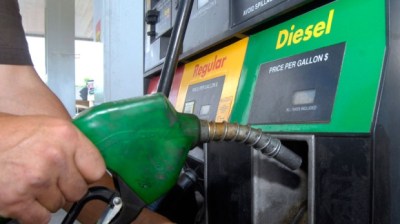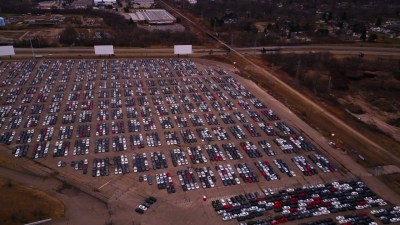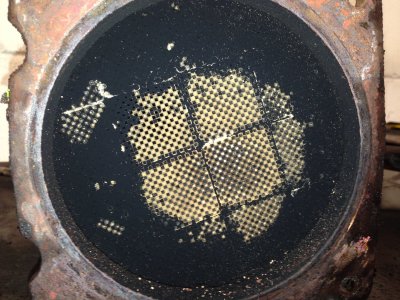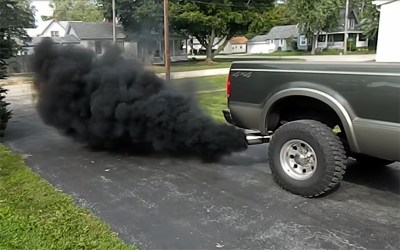The Future Of Diesel Is On Shaky Ground
Diesel is a fuel that has had a mixed history, with varying levels of take-up by consumers around the world. In the world of transport, diesel engines have offered better fuel economy and torque than comparable gasoline engines. Particularly popular in Europe, diesel established a strong consumer base in both small commuter cars as well as heavy vehicles such as trucks and buses.
Despite this, the tide is turning, and for the average motorist, diesel’s days may be numbered. Why is this the case, and what are the potential alternatives vying for diesel’s crown?
Plenty of Pros, but Plenty of Cons

Diesel is a hydrocarbon fuel with several advantages over gasoline. Its lack of volatility makes it workable to use in a compression-ignition mode, and diesel engines can be run with lean fuel-air ratios. It also has a higher volumetric energy density than gasoline, and thanks to low volatility, diesel engines can run at significantly higher compression ratios without risking detonation. These benefits allow diesel engines to produce significantly more torque than similarly sized gasoline engines, and they can offer fuel economy gains in excess of 15%.
Unfortunately, diesel also comes with its fair share of drawbacks. Diesel engines are typically poor when it comes to power to weight ratio, as their high compression ratio and torque output demands heavier materials in their construction. The major bugbear of the diesel engine, however, is its emissions. Despite greater fuel efficiency, carbon dioxide output from a diesel engine is often far worse than that of a comparable gas motor. Additionally, their lean-burning nature leads to production of high levels of oxides of nitrogen (NOx), which have major negative environmental effects. There’s also the problem of particulate pollution, which is responsible for respiratory harm in humans. Diesel automobiles rank significantly worse than gasoline vehicles in all these areas. It’s begun to cause figurative headaches for the industry, and literal headaches for the public.
Major Mistakes Create A Foreboding Future

Diesel was doing just fine, enjoying a renaissance in the early 2000s as automakers touted the fuel economy benefits of their latest technology. In principle, the NOx problem is solvable by using selective catalytic reduction, but this comes at an increased cost to manufacturers and performance hit when the driver floors it.
Cracks suddenly appeared when researchers uncovered the fact that many vehicles from the Volkswagen Auto Group were blatantly breaking emissions regulations. Among other tricks, the cars were found to be running different fuel/air mixtures and underdosing the NOx-scrubbing catalyst outside of testing conditions, providing more power at the expense of dramatically increased emissions. Suddenly, hundreds of thousands of diesel cars were subject to recalls and buybacks. Recalled vehicles were subject to modifications to engine management software, which improved emissions at the cost of economy and performance. Almost overnight, the buying public learned that diesel wasn’t the eco-friendly panacea it had been made out to be. Diesels were suddenly seen to be dirty, polluting vehicles at the center of a major international scandal.
With the auto industry still dealing with the fallout years later, the image of diesel remains tainted. Cities are lining up to ban diesel cars from the streets, while Germany is putting cash incentives on the table to encourage owners of high polluting vehicles to trade up.
Solutions That Cause More Problems

Attempts to make diesel engines cleaner have had side-effects. In efforts to meet ever tightening emissions standards, automakers have implemented new technologies, akin to the introduction of catalytic converters in petrol engines. Many vehicles are now fitted with a diesel particulate filter (DPF) in order to help reduce particulate outflows. These are fitted to the exhaust, and capture the particulate matter from the combustion process. Over time, these filters begin to become clogged with soot, increasing back pressure in the exhaust system and reducing engine performance. When this happens, the filter must be regenerated, a process in which the exhaust temperature is raised higher in order to burn off the soot. This can be achieved passively during high-speed highway driving as exhaust heat builds up, but many cars that are driven in stop-start urban environments must resort to other methods. This is referred to as active regeneration, where extra diesel is injected into the exhaust, or the engine is run at high RPM while stationary for a period of time.
DPF filters have proven problematic in practice. For many living in inner-city areas, diesels with DPFs fitted may be impractical, as the engine is forced to run active regeneration cycles regularly to make up for the lack of highway miles. Due to poor communications practices by dealerships, many owners are completely unaware of this quirk of modern diesel cars, leading to regular frustration with clogged DPFs. Further complicating the issue, some manufacturers have struggled to correctly develop regeneration routines in some vehicles, leading to consumer frustration and class action lawsuits.
The Aftermarket Isn’t Helping

Despite its flaws, diesel still has its diehard fans. The darling of those who regularly tow heavy loads or drive long highway miles, these drivers prize the torque delivery of a strong diesel engine. Tuning diesel engines has become a major aftermarket industry, with companies touting improved power delivery as well as better fuel economy from their products.
Of course, nothing comes for free, and gaining better performance often involves a trade-off somewhere else. More often than not, tuning a stock diesel engine results in a vehicle that is no longer emissions compliant. This has raised the ire of the EPA, which has brought down hefty penalties upon companies selling tuning gear. This is primarily due to tuners often using software and hardware tools to bypass emissions controls like oxygen sensors and particulate filters in the quest for more power.
At the extreme end of diesel tuning is the practice known as “rolling coal”. This involves tricking a vehicle’s ECU into dumping excessive amounts of fuel into the engine, in order to create large amounts of soot to pour from the exhuasts. This is done for fun, or to harass other road users. While it’s a pastime of a fairly small minority, it’s not winning diesel any fans, and has already been made illegal in state law in Maryland and Colorado. The EPA have long claimed the practice is a clear contravention of the Clean Air Act.
A Poor Outlook
Moving forward, the future doesn’t look rosy for diesel. The push to reduce carbon emissions promises to impact all fossil fuels. However, diesel, with its high output of NOx, particulates, and CO2, looks set to be consigned to the dustbin sooner than most. Efforts to clean up diesel engines have led to complicated emissions systems with dubious reliability and manufacturers attempting to skirt regulations. With electric vehicles rapidly gaining market share, and alternatives like hydrogen vying for relevance, conditions are tough. Worse, European and Asian countries are all planning to phase out fossil fuel vehicles entirely. In this fraught environment, it seems unlikely automakers will be willing to make the necessary investments to push diesel technology much further, leaving it to slowly wither away as regulations tighter. As always, time will tell.
from Hackaday https://ift.tt/2m1hu3Z
Comments
Post a Comment